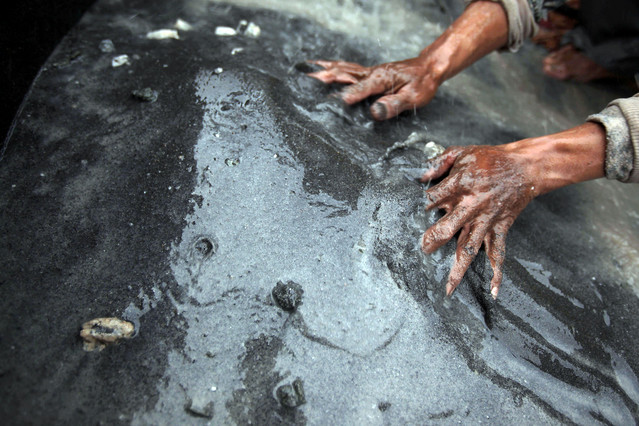Local firms reel under free trade deals

The Jakarta Post | Mon, March 04 2013
Local firms reel under free trade deals
Linda Yulisman
As the only tinplate producer in Indonesia, Pelat Timah Nusantara (Latinusa) has supplied packaging material to an array of manufacturers, such as producers of condensed milk, biscuits, paint and batteries.
The firm’s heyday has apparently passed, however, after the domestic market was opened to foreign competitors by free trade deals with nations such as China and South Korea.
Latinusa says sales have plummeted, claiming that it cannot compete with lower prices offered by foreign rivals. The company reported a net loss of Rp 44.28 billion in the third quarter of last year, versus Rp 13.2 billion in net profits in the same quarter of 2011.
“We have been significantly affected by the ASEAN-Korea Free Trade Agreement put into effect in 2012,” Ardhiman, the president director of Latinusa, said, citing a 23.1 percent rise in imports from Korea to 37,112 tons in the third quarter.
Korean imports comprised 38 percent of the nation’s overall imports last year.
Latinusa is one of many companies that have been seriously hurt by the free trade agreements signed by Indonesia. Through ASEAN, Indonesia has signed FTAs with South Korea, China, Japan, Australia and New Zealand.
Across the globe, free trade deals remain contentious and controversial, even in nations with advanced economies like South Korea or United States. However, in a world where production has become increasingly fragmented, trade deals have an unstoppable momentum.
After the Doha Round of World Trade Organization (WTO) talks stagnated in 2008, many nations stepped up measures to liberalize their markets, either through signing bilateral agreements or regional pacts.
Indonesia, Southeast Asia’s largest economy, has been no exception. The nation is currently negotiating FTAs with several other nations and associations, such as the European Free Trade Association, which comprises Iceland, Liechtenstein, Norway and Switzerland. It also has begun initial negotiations for a preferential free trade agreement with Chile and has been eyeing similar arrangements with Nigeria and Peru.
The nation has also taken the lead in negotiations scheduled for May on a regional comprehensive economic partnership (RCEP) between ASEAN and its six FTA partners — Australia, China, India, Japan, South Korea and New Zealand.
The RCEP, which would encompass 30 percent of the world’s output, would further open Indonesian markets when compared to the trade pacts currently on the books for ASEAN.
Sofjan Wanandi, the chairman of the Indonesian Employers’ Association (Apindo), struck a cautionary note, saying that the government must seriously consider the benefits — and the risks — that more free trade pacts would pose to local businesses.
Economist Hendri Saparini was also cautious, saying that government officials should decide if it wants to facilitate trade and investment by signing free-trade deals, or does it want to strengthen local businesses, something that would require extraordinary efforts.
“If the government wants to facilitate trade and investment, we can just open industrial estates, provide tax incentives and overseas firms will relocate their facilities here, which can also help the industry grow, boost exports and contribute to our economy,” Saparini said.
“That’s great, but never dream that we will one day have our own industries and enjoy the full added value on our own,” she said.





